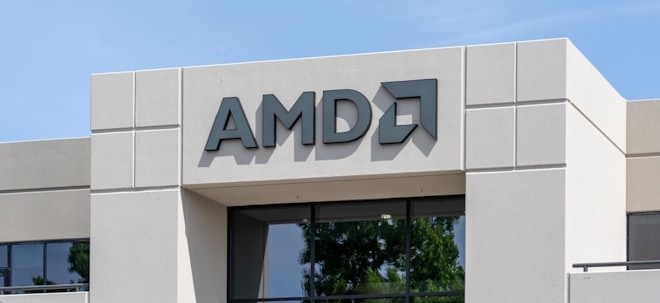Preclinical insights into dosing for first-in-human in vivo liver-directed gene therapy for MMA delivered in an oral presentation at the ASGCT Annual Meeting
Werte in diesem Artikel
PRESS RELEASE
Preclinical insights into dosing for first-in-human in vivo liver-directed gene therapy for MMA delivered in an oral presentation at the ASGCT Annual Meeting
Milan, ITALY – 14 May 2025 – Genespire, a biotechnology company developing off-the-shelf gene therapies for pediatric patients affected by genetic diseases, presented positive preclinical insights into dosing for the first-in-human in vivo liver-directed gene therapy for methylmalonic acidemia (MMA) in an oral presentation late yesterday at the 28th Annual Meeting of the American Society of Gene and Cell Therapy (ASGCT) taking place in Baltimore, MD, USA.
In the study presented at ASGCT, intravenous administration of an immune-shielded lentiviral vector (ISLV) encoding a human MUT transgene was evaluated in a mouse model of MMA. Researchers demonstrated that ISLV gene therapy effectively treats methylmalonic acidemia (MMA) in mouse models by delivering a functional MMUT gene to liver cells. A codon-optimized version (ISLV.MMUTco) showed higher efficacy at lower doses than the wild-type version. Testing three different doses revealed dose-dependent improvements, with evidence that even the lowest dose conferred benefits due to selective advantage of treated cells. Human-compatible dosing can be informed by studies in humanized mouse models, which showed that CD47-enriched vectors achieve comparable efficacy at substantially lower doses. These findings support progression toward clinical trials in MMA patients.
This work was performed by Dr. Elena Barbon, Research Scientist and Professor Alessio Cantore, Group Leader, at the San Raffaele Telethon Institute for Gene Therapy (SR-Tiget), in collaboration with Genespire.
Alessio Cantore, Group Leader at SR-TIGET and co-founder of Genespire commented: "We are very proud to have secured another oral presentation slot at the highly respected ASGCT conference. These interesting data provide us with further preclinical validation on our integrative immune shielded lentiviral vector (LV)-based gene therapy as we progress toward the clinic.”
Karen Aiach-Pignet, Genespire’s CEO added: "These data will help determine the dosing level for our anticipated Phase I clinical trial of GENE202 next year”, She added: "It is an exciting time to work at Genespire. There is a real sense of momentum in developing in vivo gene therapies following the acquisition of EsoBiotec by AstraZeneca earlier this year which has attracted a lot of interest in our work.”
Genespire is developing a novel proprietary class of lentiviral vectors, ISLVs, with lead candidate GENE202 nearing clinical development for the treatment of methylmalonic acidemia (MMA), a devastating genetic disorder impairing the metabolism of certain amino acids and fats.
For further information, please reach out to the Company.
Enquiries:
| Genespire | Tel: +39 02 80896651 info@genespire.com |
| ICR Healthcare | Tel: +44 (0) 20 3709 5700 |
| Amber Fennell/Ashley Tapp/Jonathan Edwards | Genespire@icrhealthcare.com |
About Genespire
Genespire is a biotechnology company, developing off-the-shelf gene therapies based on immune shielded lentiviral vectors (ISLVs) for pediatric patients affected by genetic diseases. ISLVs are designed to be used intravenously and allow the life-long production of the therapy directly from the patient’s liver. Genespire is initially advancing therapeutic programs in inherited metabolic diseases with high unmet medical need. Based in Milan, Italy, Genespire was founded in March 2020 by the gene therapy pioneer Prof. Luigi Naldini and Dr. Alessio Cantore, the Fondazione Telethon, and Ospedale San Raffaele. Genespire is a spin-out of SR-Tiget, a world leading cell and gene therapy research institute. Find out more about us at www.genespire.com.
About methylmalonic acidemia (MMA)
MMA is a rare, genetic metabolic disorder most frequently caused by a faulty gene coding for the mitochondrial enzyme methylmalonyl-coA mutase (MUT). People with this condition are unable to break down and use certain proteins and fats found in food and, as a result, circulating methylmalonic acid accumulates in the body, causing damage to the brain, liver, kidneys, and other organs. At present there are no disease-targeted drugs approved for MMA, and affected patients suffer high levels of morbidity and have a heavily reduced life expectancy.

Nachrichten zu Mitsubishi Materials Corp
Keine Nachrichten im Zeitraum eines Jahres in dieser Kategorie verfügbar.
Eventuell finden Sie Nachrichten, die älter als ein Jahr sind, im Archiv
Analysen zu Mitsubishi Materials Corp
Keine Analysen gefunden.

